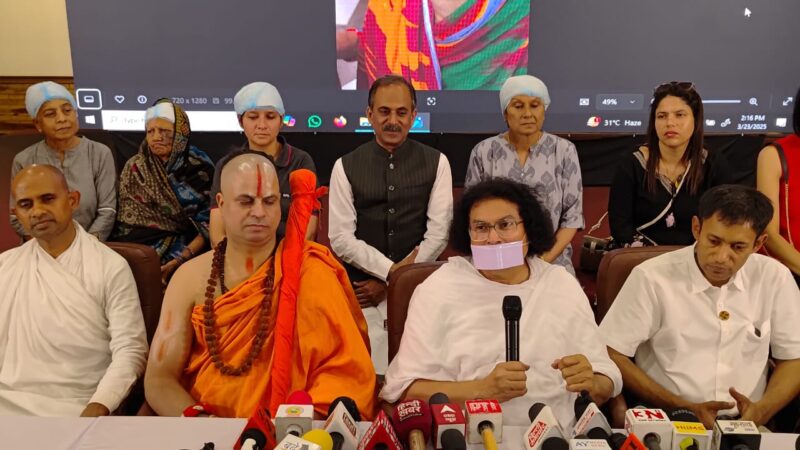New Report Assesses the Health of India’s Social Sector, Calls on Government and Companies to do More

- Mixed messages from government create a serious impediment to the smooth functioning of the social sector and the maximization of private resources going toward doing good.
- India continues to face tightening regulatory oversight, in particular relating to the receipt of foreign funding and taxable income.
- Collaboration between all sectors, individuals, community organizations, companies and government is essential for sustainable solutions to India’s social challenges, especially as it attempts to build back better from COVID-19.
COVID-19 has highlighted the important role of community organizations within India, with 95% of surveyed organizations directly supporting relief efforts, the highest proportion in Asia. A new social impact study, The Doing Good Index 2022 released by the Centre for Asian Philanthropy and Society (CAPS) shines a light on how the social sector has been key to India’s recovery and efforts to build back better as the world emerges from the pandemic.
The India data for the report was produced in partnership with GuideStar India and the Centre for Advancement of Philanthropy (CAP) which helped to survey 165 non-profit organizations and interview experts in the sector. It reveals opportunities for the government, companies and philanthropists to strengthen the social sector’s ability to serve vulnerable communities.
Despite the strong response from community organizations to exacerbated needs during COVID-19, 61% of organizations surveyed report a decrease in the number of donors, while the prevalence of government procurement contracts has fallen from 37% in 2020 to just 17% in 2022.
“The Indian Government has signaled its value of the social sector through CSR regulations and initiatives such as the Social Stock Exchange,” said Jamshyd Godrej, Chairman Godrej & Boyce and CAPS Trustee. “We can see the government understands the importance of philanthropy, social investment and the social sector.”
Reporting requirements and legislation, however, remain a pain point. “Tightened FCRA measures and tax rulings show a wariness towards the social sector,” said Dr. Ruth Shapiro, Chief Executive of CAPS. “In addition, only 13% of community organizations in India report that regulations are easy to understand, and only 10% say they are regularly consulted by government, down from 14% in 2020. There is clearly opportunity for increased collaboration.”
On the positive side, 71% of organizations say that regulations pertaining to the social sector are enforced, up from 64% two years ago. Government has also attempted to use technology and online platforms to streamline reporting and obtaining permits, and experts in India note that the time it takes for a community organization to register has decreased, on average, from 130 days to 50 days.
According to social sector expert and CAPS partner Pushpa Singh of GuideStar India, “The Indian government has engineered an effective and inclusive consultation process on building the social stock exchange. Perhaps, regulations affecting non-profit and philanthropic organizations could benefit from a similar exercise.”
How Asia can build back better from COVID-19
In order to meet the United Nations Sustainable Development Goals (SDGs) by 2030, economies in Asia will need to invest US$1.5 trillion annually. However, Asia is currently not on track to meet any of the SDGs as a region. Private capital plays a critical role in closing this funding gap. An estimated US$701 billion per year can be unleashed if Asia – home to 26% of the global rich – were to match the United States in terms of philanthropic spend. This is about 14 times the net foreign aid flowing to Asia and roughly 28% of the expected costs to fulfil the SDGs by 2030.
The Doing Good Index, first released in 2018, is a study of the social investment landscape in Asia. It exposes the underlying structural conditions preventing the region’s social sectors from thriving, whilst highlighting enabling factors that can empower governments, companies, philanthropists, and social delivery organizations (SDOs) to tap resources and work together to meet Asia’s challenges. The Index can help philanthropists, policymakers, researchers, SDOs and the public understand what levers can best increase philanthropic giving in their economy.
The DGI2022 identifies six broad trends across Asia
1. Most economies lack a clear and consistent set of policies to allow the social sector to thrive.
- Conflicting and fluctuating regulations across the region are diluting the incentivizing potential of policies to encourage systematic philanthropic giving. In India, stringent regulations, particularly on the flow of foreign funding and reporting requirements is making it harder for private social investment to circulate.
2. Funding to the social sector is characterized by shortfalls and SDOs are adapting.
- Due to changes in FCRA, obtaining the necessary approvals to receive foreign funding can take almost double the amount of time it took in 2020, placing significant burden on the 45% of surveyed SDOs in India receiving foreign aid.
3. Tax and fiscal policies are powerful incentives for charitable giving, but the positive effects of incentives are often held back.
- All 17 economies offer tax incentives for philanthropic donations by corporates and all but one offers the same for individual donations. Rates of tax deductions vary widely.
- While 12 economies in Asia offer tax deduction rates of 100% or above for individual and corporate donors, India only offers a rate of 50% for both. Furthermore, deductions can only be claimed for up to 10% of income.
4. Recruiting talent to the sector is a challenge across Asia.
- Around 69% of SDOs in India find it difficult to recruit talent. This is further exacerbated by the public perception that nonprofit employees should earn less than their private sector counterparts.
- On the positive side, three quarters of SDOs reported that their donors sometimes or always support capacity building which can help organizations build their talent pipeline.
5. Companies are engaged but need to do more.
- India outshines other economies with some of the most progressive CSR requirements. Qualifying companies must allocate 2% of pre-tax profit to CSR, resulting in a significant uptick of corporate funding for social good.
- 50% of SDOs in India receive funding from corporates, but this only comprises 16%, by proportion, of an SDO’s funding sources.
- A quarter of SDOs with a board lack corporate representation and 72% find it difficult to recruit board members from the corporate sector.
6. Government is an important enabler through funding, engagement and signaling.
- Only 17% of SDOs in India have government procurement contracts, comprising just 1%, by proportion, of an SDO’s funding sources.
- 80% of SDOs in India say that it is difficult to access information about procurement opportunities, and 77% believe it is difficult for SDOs to win procurement contracts. With two-thirds of SDOs reporting that the approval process is not or only somewhat transparent, a more open approval process could enhance engagement.
DGI 2022 Report
The Doing Good Index 2022 surveyed 2,239 SDOs and interviewed 126 experts across 17 Asian economies: Bangladesh, Cambodia, China, Hong Kong, India, Indonesia, Japan, Korea, Malaysia, Nepal, Pakistan, Philippines, Singapore, Sri Lanka, Taiwan, Thailand, and Vietnam. It examines regulatory regimes, tax incentives, procurement procedures and sociocultural conditions
Download the Doing Good Index 2022 and visit the interactive microsite.
(Disclaimer: The above press release comes to you under an arrangement with NewsVoir India and this publication takes no editorial responsibility for the same)






